
Don Sin, MD, FRCP, MPH, who is presenting at CHEST 2021 on the topic of precision medicine and chronic obstructive pulmonary disease, discusses other topics of interest at CHEST 2021, which takes place virtually from October 17 to October 20, 2021.

Don Sin, MD, FRCP, MPH, who is presenting at CHEST 2021 on the topic of precision medicine and chronic obstructive pulmonary disease, discusses other topics of interest at CHEST 2021, which takes place virtually from October 17 to October 20, 2021.
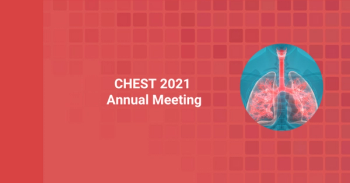
Compared with conferences held a year ago at this time, when vaccines were not yet available and the United States had yet to hit the peak of the pandemic, there are now more data to discuss about what we know and do not know about COVID-19.

Multidisciplinary lung cancer clinics might help patients and the system save on treatment costs while improving patient experiences, according to an abstract presented at CHEST 2020.

Experts spotlighted sex- and gender-specific changes in normal sleep and sleep disturbance, as well as attributable risk factors, during a session at the CHEST 2020 annual meeting.
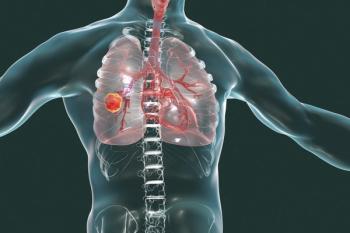
Current lung cancer screening guidelines do not identify high-risk young, African American smokers, an abstract presented at CHEST 2020 found.

Abstracts presented at CHEST 2020 explored possible reasons for low lung cancer screening rates and suggested solutions.

Two CHEST 2020 abstracts looked at mortality risks for patients with chronic obstructive pulmonary disease (COPD).

During a session at CHEST 2020, Robyn Scatena, MD, director of critical care at Norwalk Hospital, outlined 2 communication models to help break bad news in the intensive care unit (ICU).

Rates of delirium for patients in the intensive care unit (ICU) have skyrocketed in the coronavirus disease 2019 (COVID-19) pandemic, said Brenda Truman Pun, DNP, RN, director of data quality, Vanderbilt Critical Illness, Brain Dysfunction, and Survivorship Center.

It is still unclear why patients who should respond to anti–interleukin-5 therapies do not, noted Anne Reihman, MD, Division of Pulmonary Sciences and Critical Care Medicine, University of Colorado.

Artificial intelligence allows underserved populations to gain access to a radiologist, pointed out Anthony L. Loschner, MD, assistant professor and associate program director, Critical Care Fellowship Program, Virginia Tech Carilion School of Medicine.

Recent guidelines have renewed the focus on treating severe asthma. During 2 panels at CHEST 2020, experts discussed key updates, limitations of the guidelines, and more.
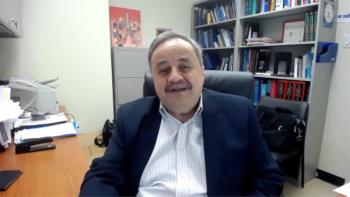
Shared decision-making is very important when it comes to choosing biologics for patients, emphasized Nicola Hanania, MD, MS, pulmonary critical care physician and director, Airways Clinical Research Center, Baylor College of Medicine, Houston, Texas.

Challenges remain, in light of new guidelines, when making treatment decisions for patients with severe asthma, noted Megan Althoff, MD, PhD, second year fellow, University of Colorado, Division of Pulmonary Sciences and Critical Care Medicine.
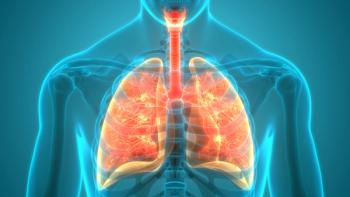
Abstracts presented at CHEST 2020 looked at improving diagnosis of acute respiratory distress syndrome (ARDS) with machine learning and the development of intensive care unit delirium in hospitalized patients with ARDS.

Addressing pandemics requires preventing infections, controlling the spread of the disease, and minimizing deaths through the use of comprehensive plans, policies, and procedures.

Updated asthma guidelines touch on some challenging areas in disease management and treatment, noted Dan Ouellette, MD, MS, FCCP, of Henry Ford Hospital and Wayne State University School of Medicine.

Chronic cough is a problem that can have a major impact on quality of life for patients. In many cases, no cause can be found, but there are emerging therapies that could change treatment for these patients.

Chronic cough is frustrating for patients and their families, especially during the pandemic, explained Krishna M. Sundar, MD, FCCP, clinical professor, Pulmonary Division, Department of Medicine, and medical director, Sleep-Wake Center, University of Utah.

Clinician handoff is critical and can help reduce medical errors in the intensive care unit (ICU), according to a series of presentations on planning and communicating around ICU transitions.

We are still working to figure out why low levels of vitamin D are associated with worse outcomes in critical illness, noted Todd W. Rice, MD, FCCP, associate professor of medicine at Vanderbilt University Medical Center in Nashville, Tennessee.
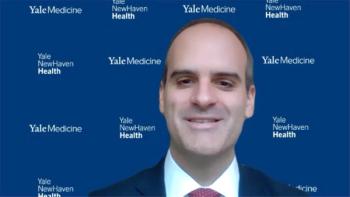
Tele–intensive care units (ICUs) address coverage gaps and improve quality outcomes, noted John Kazianis, MD, clinical associate professor, Yale School of Medicine, and medical director, InSight Tele-ICU, Yale New Haven Hospital.
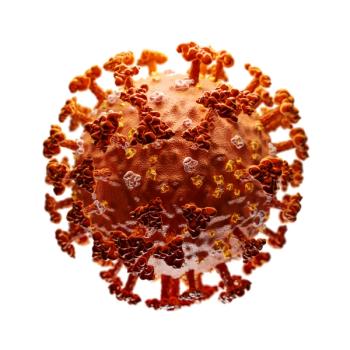
Coronavirus disease 2019 (COVID-19) is unlike any pandemic the world has experienced in the last 100 years, said Anthony Fauci, MD, director of the National Institute of Allergy and Infectious Diseases, during his keynote.

The era of accountable care and pay for performance is here, and physicians will have to embrace these novel reimbursement models. In a plenary session, Rubin Cohen, MD, FCCP, a member of the American College of Chest Physician's quality improvement committee, discussed the relationship between quality improvement and outcomes.

During a plenary session at the American College of Chest Physicians' CHEST meeting in Austin, Texas, Edgar Jimenez, MD, FCCM, vice president of critical care integration at Baylor Scott and White Health in Central Texas, discussed how to prepare for Ebola in the Intensive Care Unit (ICU) setting. Dr Jimenez began by introducing the session as a way to answer questions and to provide hospital ICU staff with key considerations for Ebola preparation in the United States.

A symposium on idiopathic pulmonary fibrosis (IPF), which was presented on behalf of InterMune, Inc, highlighted clinical data supporting the use of pirfenidone in patients with IPF. Leading the panel discussion was Steven Nathan, MD, FCCP, a principal investigator involved in studies of pirfenidone. Dr Nathan was joined by IPF experts Lisa Lancaster, MD, of Vanderbilt University Medical Center and Marilyn Glassberg, MD, of the University of Miami Health System.

The categorization of lung allograft dysfunction is changing, David Nunley, MD, clinical director of lung transplant at the University of Louisville Health Care Outpatient Center, said at the 2014 CHEST meeting in Austin, Texas.
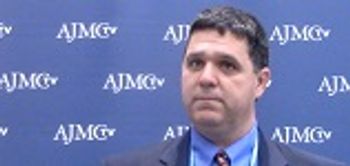
Fear is the biggest barrier preventing providers from using social media to its fullest potential, according to Christopher Carroll, MD, social media editor at CHEST and research director for the Division of Critical Care at the Connecticut Children's Medical Center.

Dan Heath, a senior fellow at the Center for Advancement of Social Entrepreneurship at Duke University, outlined strategies for implementing change within an organization, including looking for solutions that are already present within an organization, as a solution to a large problem may already have been implemented on a small scale.

During a panel discussion, Darren Taichman, MD, PhD, executive deputy editor of the Annals of Internal Medicine and adjunct associate professor of medicine, Perelman School of Medicine, University of Pennsylvania, presented updates to pulmonary hypertension treatment guidelines, and Daniel Oulette, MD, FCCP, leader of the American College of Chest Physicians guideline oversight committee, discussed the move toward evidence-based guidelines that allow for continuous updates.

259 Prospect Plains Rd, Bldg H
Cranbury, NJ 08512
© 2025 MJH Life Sciences®
All rights reserved.
